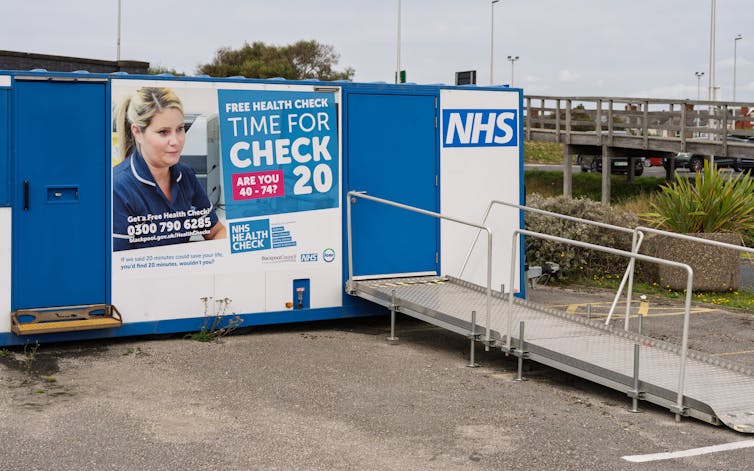Opinion
The UK must invest in medicines – but not at any price
The UK’s science minister, Sir Patrick Vallance, has sounded the alarm over the country’s declining investment in medicines. He warned that the NHS risks losing out on important treatments and the country could lose its place at the cutting edge of medical research if spending does not recover. It comes at a sensitive time – this year drugmakers including Merck and AstraZeneca have backtracked on plans to invest in the UK.
Vallance is correct that there is a need to encourage pharmaceutical firms to keep investing and launching new medicines in the UK. On the other side, there is a need to protect public funds from being wasted on treatments that do not offer enough benefit for their cost.
At the moment, just 9% of NHS healthcare spending goes on medicines. This is less than Spain (18%), Germany (17%) and France (15%). At a time when some experts believe the UK is getting sicker, this might come as a surprise.
But the UK is unusual among major health systems in how carefully it regulates drug spending. The National Institute for Health and Care Excellence (Nice) has, since its creation, judged new treatments not only on clinical evidence but on cost-effectiveness.
That means asking whether a drug’s health benefits – measured in quality-adjusted life years (QALYs) – justify its price compared with existing care. For most treatments the threshold is about £20,000 to £30,000 per QALY. This is not a perfect measure, but it gives the NHS a consistent way of deciding whether the health gained is worth the money spent.
The value of this approach is clear. Nice’s record shows that medicines that pass its tests have added millions of QALYs to patients in England, while also preventing waste on drugs that bring only marginal improvements at high cost.
A study published earlier this year in medical journal The Lancet found that many of the new medicines recommended by Nice between 2000-2020 brought substantial benefit to patients. But it also noted that some high-cost drugs deliver much less health gain than investments in prevention or early diagnosis could.
The study emphasises that maintaining rigorous thresholds around cost-effectiveness ensures that public funds go to treatments that really improve lives. In other words, the discipline of cost-effectiveness has protected the public purse while ensuring access to genuine innovations.
This regulatory strength is reinforced by national pricing schemes for branded medicines. These cap overall growth in the NHS drugs bill and require companies to pay rebates if spending rises too fast. In practice, this means that if total spending on branded medicines exceeds an agreed annual limit, pharmaceutical companies must pay back a percentage of their sales revenue to the Department of Health.
In recent years that rebate rate has been as high as 20–26% of sales, effectively lowering the price the NHS pays. This is made possible by the buying power of the health service.
Together with Nice’s appraisals, these measures have helped the NHS maintain relatively low medicines spending compared with many countries. At the same time, it still secures access to major advances in cancer therapy, immunology and rare disease treatment.
For a publicly funded service under constant financial strain, these protections are vital. Despite the pressure on its budget, the NHS has secured meaningful access to new therapies. For example, by March 2024, nearly 100,000 patients in England – many of whom would otherwise face long delays or rejection – had benefited from early access via the Cancer Drugs Fund to more than 100 drugs across 250 conditions.
The balance with Big Pharma
However, strict controls on price and access can have unintended consequences. If companies see the UK as a low-return market, they may choose to launch new drugs elsewhere first, or to limit investment in research and early trials here.
There is a danger that patients could face delays in receiving new treatments. Or the scientific ecosystem, which relies on steady collaboration with industry, could weaken.
Still, the answer is not to abandon cost-effectiveness. Without it, the NHS would risk paying high prices for small gains. This would divert money from staff, diagnostics or prevention – areas that often bring more health benefit per pound spent.

Marmalade Photos/Shutterstock
In such cases, raising thresholds or relaxing scrutiny would do more harm than good. Cost-effectiveness is not just about saving money. It is about fairness, ensuring that treatments funded genuinely improve lives relative to their cost.
The challenge, then, is balance. The UK should continue to hold firm on value for money, while finding ways to encourage investment. That might mean improving the speed and clarity of Nice processes, so that companies know where they stand earlier and patients can access good drugs more quickly.
It could involve reviewing thresholds periodically to account for inflation and medical progress, without undermining the principle that treatments must show sufficient benefit. And it certainly means supporting research and development through stable partnerships with universities, tax incentives and grants.
What should not be underestimated is the UK’s scientific strength. The country remains home to world-class universities, skilled researchers and an innovative biotech sector. The rapid development of the Oxford–AstraZeneca COVID vaccine showed what UK science can deliver at scale and speed.
Read more:
The UK’s speedy COVID-19 vaccine rollout: surprise success or planned perfection?
Pharmaceutical companies know this, and many – including AstraZeneca, GSK, Novo Nordisk, Pfizer, Johnson & Johnson and most recently Moderna – continue to invest in British labs and trials because of the talent and infrastructure. Danish firm Novo Nordisk has strengthened its ties with the University of Oxford, committing £18.5 million to fund 20 postdoctoral fellowships as part of its flagship research partnership.
The UK’s approach to assessing value has won respect internationally. That discipline must be preserved. Reversing the decline in investment means creating a predictable, transparent environment for industry while maintaining the protections that safeguard patients and taxpayers alike. If done well, the UK can continue to be both a responsible buyer of medicines and a world leader in science.





